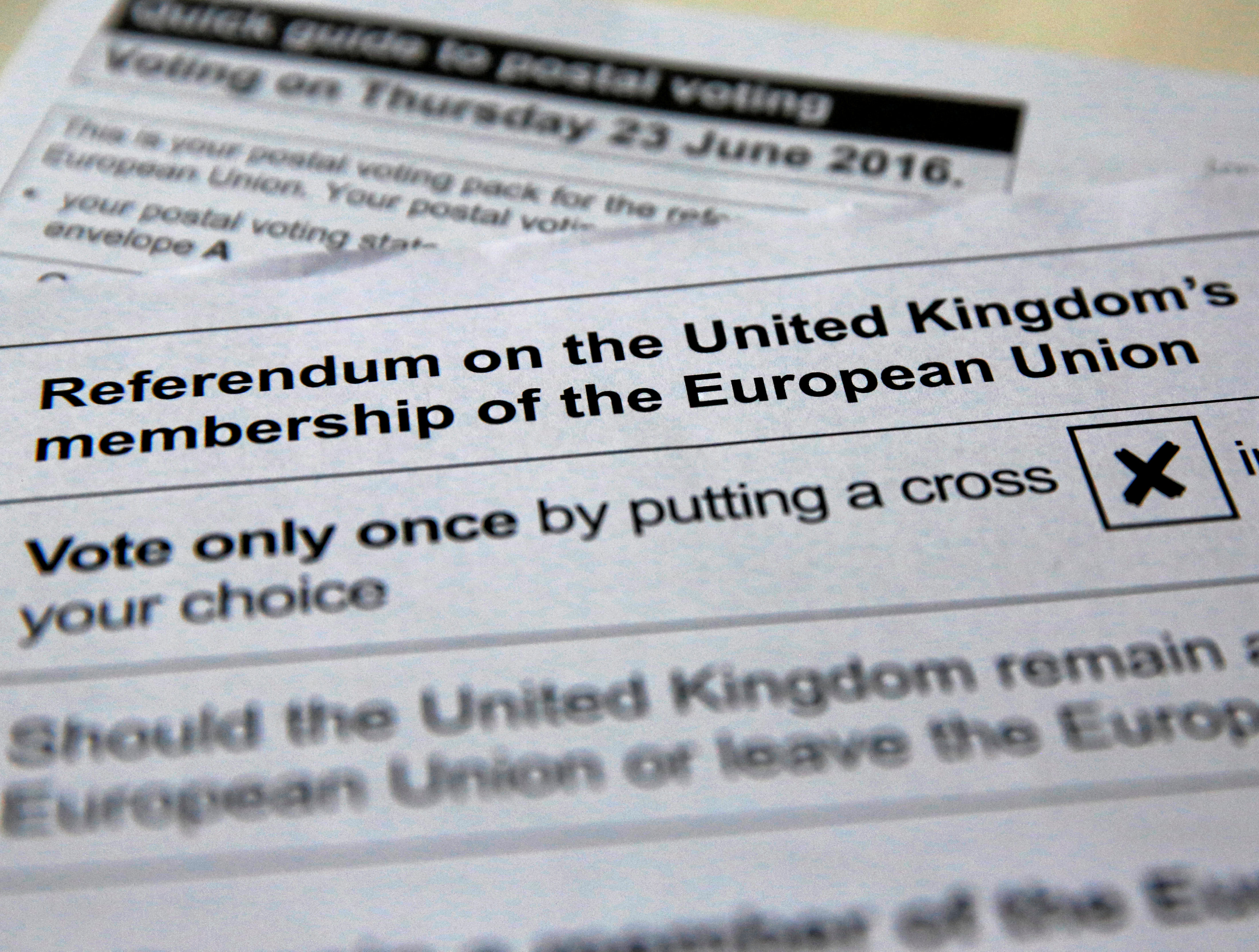
Democracy, under siege in many parts of the world, received a serious blow in its homeland last week. In a series of jaw-dropping pronouncements, members of the Conservative British government asserted that some people were more equal than others.
Home Secretary Amber Rudd proposed forcing companies to disclose how many foreign workers they employ, and threatened to "name and shame" British companies that did not train British workers. Health Secretary Jeremy Hunt hoped to make the National Health Service (NHS) "self-sufficient" by training more British doctors. Finally, Prime Minister Theresa May, denouncing an "international elite," ditched the cosmopolitan ideals of the Enlightenment: According to her, "If you believe you're a citizen of the world, you're a citizen of nowhere.”
The rhetoric was borrowed from the far-right UK Independence Party (UKIP) that led the campaign for Brexit; it represented an extraordinary intellectual and moral triumph for a party that was once described, accurately, by the previous prime minister David Cameron as "fruitcakes, loonies and racists."
Some outraged commentators in Britain compared the outpourings from May and her colleagues last week to Nazi rhetoric in the 1930s. This is dangerously misleading. The Tories do not propose to abolish democracy, or even the welfare state. Indeed, they claim to be practicing more rather than less democracy.
The difference between them and other democrats is that their vision of extended social services -- decent housing, efficient health care system, better schools -- applies only to their own people. They propose to build a large gated community through popular consensus, whose members alone will enjoy liberty and equality, and where various aliens will not be welcome.
Modern democracy has often gone through such phases, in which citizenship and political participation is made more attractive by denying it to others. In his classic study "An American Dilemma: The Negro Problem and American Democracy," the Swedish economist and Nobel laureate Gunnar Myrdal described how racism became a form of democratic solidarity in the United States in the late 19th century, in the hands of both right-wing and left-wing populists; a way to unite white "wage slaves" against Asian immigrants and African-Americans, and restore their dignity.
In India, the biggest ever experiment in democracy has reached a similar paradoxical stage under a Hindu nationalist government. For many freshly empowered Hindus, their achievement of hard-won rights is inseparable from the urge to prevent members of minority groups from enjoying them. They savour their new-found citizenship by affirming it as an exclusive privilege that will not be made available to many.
Last week, the coffin of a Hindu fanatic accused of lynching a Muslim on the suspicion of storing beef in his house, was draped in the Indian flag; and he was widely hailed as a "protector of Hindu values." Such affirmations of sectarian identity are now routine, a result of India’s astoundingly rapid ideological makeover by a movement that, like UKIP, existed on the fringes of Indian politics for much of India’s existence.
So to my ears, attuned to more than two decades of exclusionary rhetoric and identity politics, the quasi-UKIP xenophobia of Britain’s rulers sounds eerily familiar. There is a word for this urge, licensed by a democratic majority, to ostracize and degrade if not expel the alien within, and it is often used to describe the politics of Hindu nationalism: majoritarianism.
Who could have imagined that this pathology would manifest itself in the cradle of parliamentary democracy? But desperate politicians confronted with disaffected voters, it seems, will try anything, regardless of the costs. The campaign for Brexit unleashed a wave of bigotry, resulting in the assassination of Jo Cox, a member of parliament, by a deranged man shouting "Britain First!" The three months since Brexit have witnessed a spike in hate crimes, against ethnic minorities and foreign nationals.
Last week’s statements by Tory politicians continued the incendiary rhetoric. Following an uproar from business and the media, there was some predictable backtracking on the most extreme plans. But then the whole foray into chauvinism seemed designed to, among other things, preclude substantive discussions about the looming threats to British society and economy: automation, for instance, which would cost more British jobs than immigration.
Certainly, there is no sign that majoritarianism will enhance Britain’s political and economic standing in the world. The pound has been sliding since last week -- a warning sign for a country that imports one-third of the goods and services it consumes. Europe’s leaders, from Angela Merkel to Francois Hollande, have toughened their rhetoric about Britain’s exit from the European Union (EU).
Brexit represents, as I wrote at the time, a "collective suicide bombing" by Britain’s globalised elites. It is hard to believe, but their hard-line majoritarian successors are unrepentantly setting up bigger detonations, as though verifying Adam Smith’s maxim that "there is a great deal of ruin in a nation." - Bloomberg View